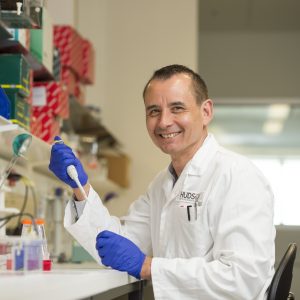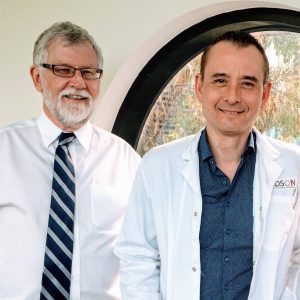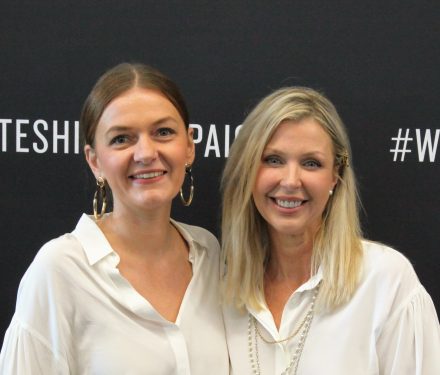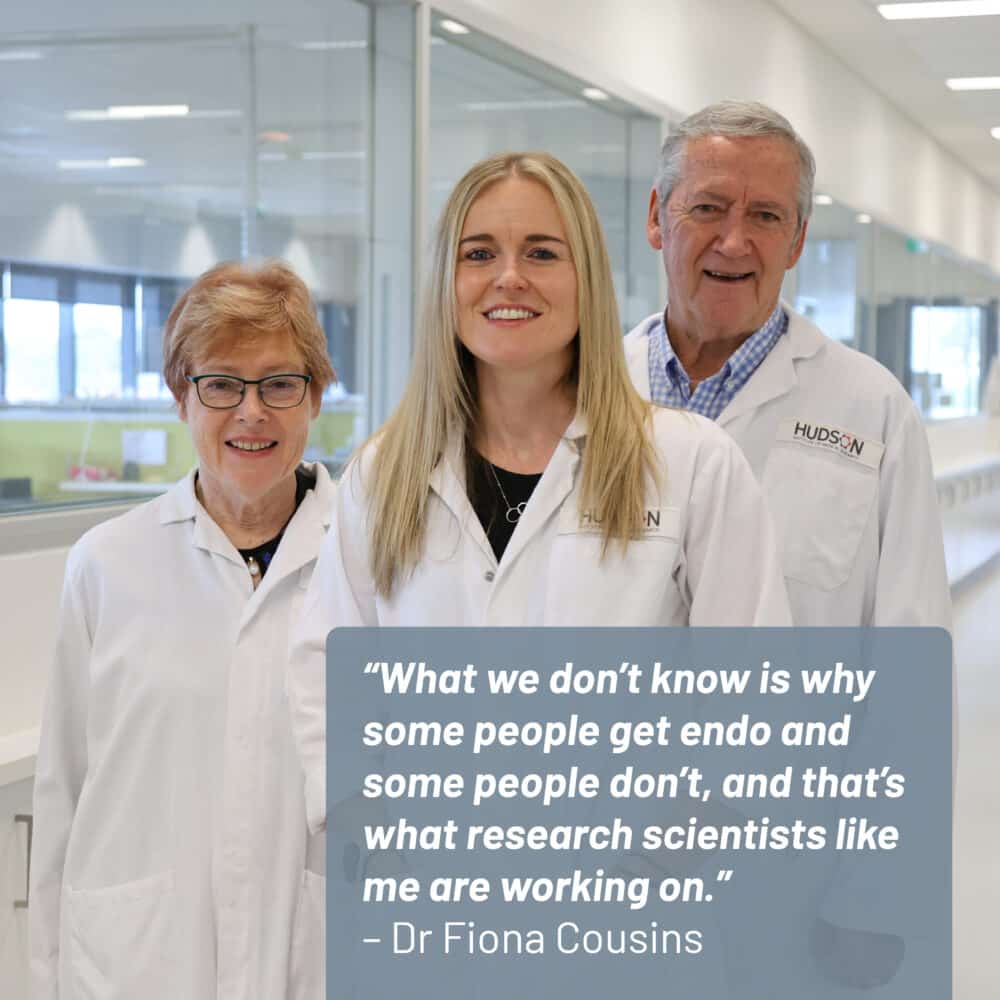$2.2 million awarded to tackle rare ovarian cancer
By Hudson Institute communications
Women with a rare and potentially aggressive form of ovarian cancer will benefit from a grant to continue ground-breaking research into new detection and treatment methods.

Led by the Hudson Institute of Medical Research, a collaboration to combat ovarian granulosa cell tumours (GCT) has received $2,218,870 from the Medical Research Future Fund (MRFF) Emerging Priorities and Consumer Driven Research Initiative.
It is part of $16.2 million that the Federal Health Minister, The Hon Greg Hunt, announced for eight ovarian cancer projects on World Ovarian Cancer Day.
Dr Simon Chu’s Hormone Cancer Therapeutics team at Hudson Institute is working with collaborators to improve outcomes for women with hormonally active GCT – a rare subset of ovarian cancer.
Dr Chu says the grant will allow the team to build on progress already made in understanding and fighting GCT, which accounts for 5-10 per cent of ovarian cancers and can occur at any age.
This includes a combination treatment approach for GCT, and using a large-scale genome sequencing approach to map the tumour’s genome.
“It’s a real breakthrough for us,” Dr Chu says. “It’s recognising that the work we’re doing is important as well as meaningful.”
Using real world data for robust research
The team aims to identify genetic mutations that cause GCT, develop more efficient and cost-effective testing, find gaps in patient information, care and services, and further investigate personalised and combination therapies.
The five research themes are
- Patient reported outcomes: Analysing an international social media database of 804 patients created by USA group GCT Survivor Sisters.
- Genomics: Using the latest sequencing techniques to identify mutations, genes and/or pathways that lead to poor outcomes.
- Molecular pathogenesis: Using innovative gene editing techniques to establish how mutations cause GCT.
- Improved diagnosis/detection: Developing more sensitive diagnosis and surveillance techniques.
- Novel combination therapy: Investigating combination drug treatments.
Dr Chu is looking forward to analysing the ‘real world data’ of Survivor Sisters, a global Facebook group whose members share details of their treatment journey. It provides unique access to a large cohort.
“One of the exciting parts of this grant is we’re delving into an area that’s new,” Dr Chu says. “Effectively what this group has done is build this database with some amazing information.”
Personalising treatment for improved results
Ovarian cancer has the lowest female cancer survival rate. Only 43 in 100 women diagnosed lives for five years. Cancer Australia estimates that 1500 women will be diagnosed and 1000 die from the disease in 2020.
GCT are initially slow growing and relatively easy to detect due to hormonal changes. But they can return up to 30 years later in a more aggressive form resistant to chemotherapy and radiation.
A small percentage of those with GCT have a juvenile version that is aggressive from the start. A $10,000 donation from Rare Ovarian Cancer Inc. enabled the group to kickstart a world-first study into juvenile GCT, but the new money will enable it to do so much more.
“Part of the work is to look at the genomic landscape and the mutations that are causing a tumour to become more aggressive,” Dr Chu explains. “When the tumours recur, they’re particularly aggressive and can’t be treated.”
The team hopes to identify these mutations and develop treatments that can be matched to a specific mutation, allowing them to be personalised for each patient.
Next steps
Recognised as the world’s best in its field, the GCT team includes Professor Peter Fuller AM (Hudson Institute of Medical Research and Monash Health), Dr Simon Chu (Hudson Institute), Professor Thomas Jobling (Monash Health), Professor Victoria White (Deakin University), Associate Professor David Powell (Monash University), Professor John Silke (Walter and Eliza Hall Institute of Medical Research) and Ms Natasha Armour (Rare Ovarian Cancer Incorporated)

As a rare cancer, it is challenging to gather large cohorts for the research, and, until now, difficult to attract funding. Our group has one of the world’s largest collections of this tumour type, and this grant will fund a range of related projects for five years.
Partnerships with the Ovarian Cancer Research Foundation, Victorian Cancer Agency, Monash Partners Comprehensive Cancer Consortium, and the Granulosa Cell Tumor Research Foundation for PhD scholarship and travel bursaries will take the total to around $2.5 million.
Dr Chu says the grant is “like a godsend”. “It gives us five years of being able to concentrate on answers to questions that we’ve really wanted to get answered without distraction,” he says.
Professor Fuller, who heads the Centre for Endocrinology and Metabolism at Hudson Institute and the Endocrinology Unit at Monash Health, is pleased that those affected by GCT will benefit from the funding.
“It was clear from the literature and communication from women around the world, that this was an overlooked condition; and for those with advanced disease, there were no answers,” he says.
Collaborators | Monash Health, Department of Gynaecological Oncology, Department of Endocrinology; Deakin University, School of Psychology; Monash University, Bioinformatics Platform; The Walter and Eliza Hall Institute of Medical Research, Infection, Inflammation and Immunity Theme
Funders | Medical Research Future Fund Emerging Priorities and Consumer Driven Research Initiative – 2019 Ovarian Cancer Research Grant
Contact us
Hudson Institute communications
t: + 61 3 8572 2761
e: communications@hudson.org.au
About Hudson Institute
Hudson Institute’ s research programs deliver in five areas of medical need – inflammation, cancer, reproductive health, newborn health, and hormones and health. More
Hudson News
Get the inside view on discoveries and patient stories
“Thank you Hudson Institute researchers. Your work brings such hope to all women with ovarian cancer knowing that potentially women in the future won't have to go through what we have!”






